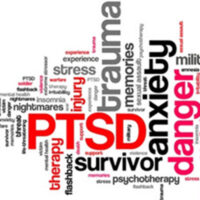Medical And Legal Issues Regarding Collision-Related PTSD

Post Traumatic Stress Disorder is perhaps the most common type of collision-related brain injury. Approximately 50 percent of car crash victims experience symptoms like hypervigilance, depression, anger, and flashbacks. However, the symptoms alone often don’t prompt these individuals to get the treatment they need. The brain conceals its own injuries, so many of these victims don’t know how badly they are hurt. Furthermore, there is a lingering stigma about PTSD.
A Tampa brain injury lawyer always puts first things first. Proper medical treatment is the immediate priority in these situations. These victims need to see doctors who focus on collision-related brain injuries. Usually, attorneys connect victims with top doctors who charge nothing upfront for their services. Once treatment is arranged, the focus shifts to obtaining fair compensation for your serious injuries.
What Causes PTSD?
A misunderstanding of the nature of this brain injury is the primary reason for the aforementioned PTSD stigma. Post Traumatic Stress Disorder is not a random ailment that affects some people but not others. Instead, PTSD is a physical brain injury that affects different people in different ways.
Extremely stressful situations, like serious vehicle collisions, trigger a chemical imbalance in the brain. The cerebral cortex, which is the part of the brain that controls logical responses, gets smaller. Meanwhile, the amygdala, which is the area of the brain that controls emotional responses, gets bigger. The resulting imbalance leads to the aforementioned symptoms.
Basically, PTSD is a lot like a cowboy taming a wild horse. If the cowboy weakens and loses control of the horse, the pony runs wild. Similarly, if the cerebral cortex weakens, it cannot keep the amygdala in check.
Treatment Issues
Brain injuries like PTSD are always permanent. Once these cells die, they never regenerate. However, a combination of surgery, therapy, and medication often eases the symptoms enough for these victims to live normal lives.
Brain surgery is usually necessary for extreme situations. The doctor reduces swelling, to prevent the brain from pressing against the skull and making the injury worse.
Therapy is usually the most important PTSD treatment. Usually, this approach involves a mixture of individual, group, and creative therapy. Individual therapy helps victims identify and avoid PTSD triggers, such as TV shows and movies that feature car crashes. Group therapy lets victims know they are not alone. Creative therapy, like painting or music, gives victims a creative outlet, so they can think about something other than their symptoms.
Medication is an evolving area. Some studies indicate that MDMA (ecstasy) might effectively treat PTSD symptoms. In clinical trials, some victims experienced significant relief after just one dose.
All these treatments sound expensive, and they are expensive. As mentioned, attorneys usually roll this treatment into the medical treatment aspect of a car crash claim, which means paying nothing upfront.
Medical and other bills eventually come due, which is why maximum compensation is so important. Unless victims get all the compensation they need and deserve, they must settle for less when it comes to brain injury treatment.
Reach Out to a Thorough Hillsborough County Lawyer
Injury victims are usually entitled to significant compensation. For a free consultation with an experienced personal injury attorney in Tampa, contact Mark H. Wright, PLLC. Virtual, home, and hospital visits are available.
Resource:
ncbi.nlm.nih.gov/pmc/articles/PMC2396820/
